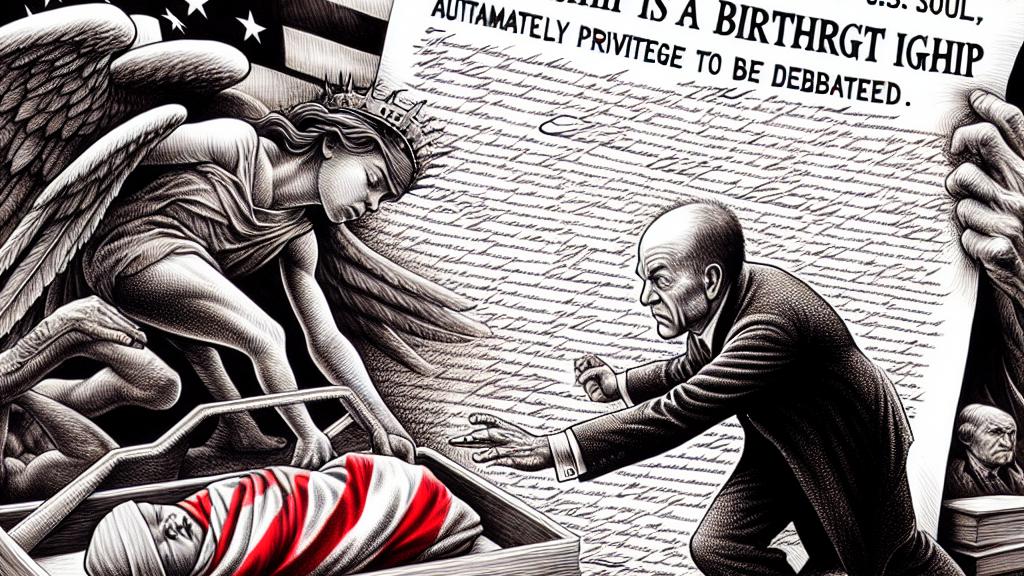Understanding the Court Ruling on Citizenship Rights
Overview
- Federal judge blocks Trump's attempt to limit birthright citizenship, reinforcing constitutional values.
- The ruling reaffirms that anyone born in the U.S. is a citizen under the 14th Amendment.
- Growing legal challenges against executive overreach showcase a commitment to civil rights protections.

The Vital Role of Birthright Citizenship
Birthright citizenship is a fundamental aspect of American democracy—it guarantees that anyone born on U.S. soil automatically becomes a citizen. This principle, enshrined in the 14th Amendment, isn’t just a legal technicality; it represents the heart and soul of what America stands for: equality and opportunity for all individuals. Recently, a notable event unfolded when a federal judge in Washington state blocked an executive order from President Trump aimed at changing this long-standing right. Judge John Coughenour, citing decades of judicial experience, boldly described the order as 'blatantly unconstitutional.' His firm stance highlights that the bedrock of American rights should not be manipulated for political agendas, emphasizing a core democratic belief that citizenship is a birthright, not a privilege to be debated.
A Strong Judicial Response to Executive Overreach
This court ruling signals a significant pushback against what many view as executive overreach—an attempt to alter established rights with little regard for the Constitution. Numerous states, in partnership with civil rights organizations, united to challenge the restrictive executive order, showing that the legal community is both vigilant and resilient. Arizona Attorney General Kris Mayes encapsulated this sentiment when he asserted, 'No president can change the Constitution on a whim.' Such statements resonate deeply across the nation, reinforcing a collective commitment to uphold the rules that protect us all. This ruling isn’t simply about one case; it’s a rallying cry against any efforts that undermine the foundational principles of democracy, illustrating how the judicial system serves as a guardian of civil rights.
Public Sentiment and Future Implications
The public has responded enthusiastically to this ruling, with many recognizing the reaffirmation of birthright citizenship as a cornerstone of their identity as Americans. Influential leaders, like Congressman Ted Lieu, have passionately argued that 'if you’re born in America, you're a citizen,' distilled into a clear, potent message about inclusivity. This idea connects to historical legal precedents; for example, the landmark 1898 Supreme Court case of Wong Kim Ark confirmed that children born to immigrants in the U.S. are entitled to citizenship, establishing a powerful legal precedent that still resonates today. As legal challenges to Trump’s policies continue to arise, we find ourselves at a critical juncture in the ongoing dialogue regarding citizenship. This moment underscores that our rights and identities are not merely privileges given at the discretion of the powerful; they are integral components of what makes this nation truly unique and just. Therefore, as we look to the future, maintaining our commitment to these values will be essential in ensuring that the principles of democracy and justice continue to prevail.

Loading...